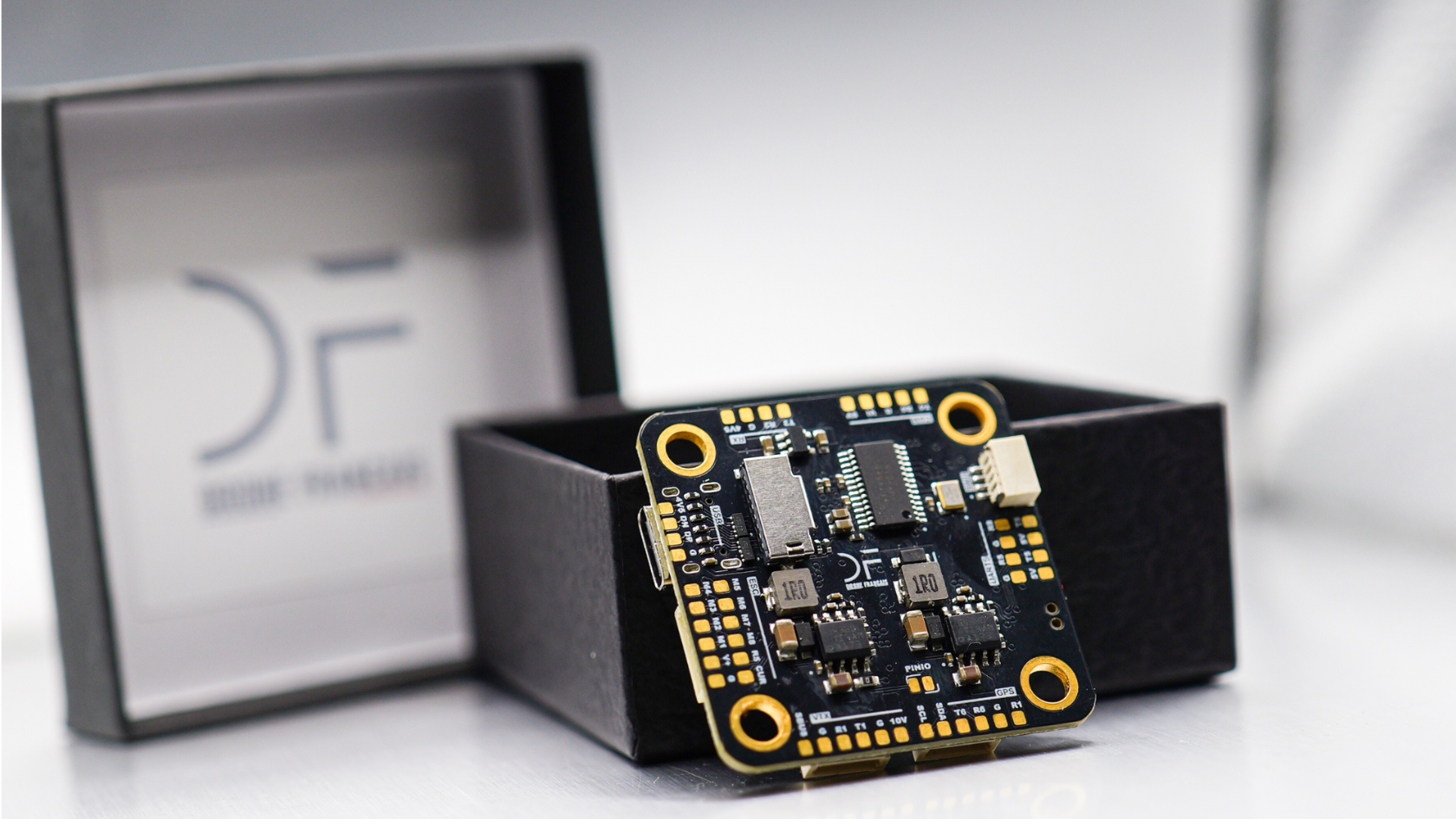Chip, microcontroller, ESC (Electronic Speed Controller), logic board or radio module: electronic components are the invisible pillars of the modern economy. Found in drones, smartphones, vehicles, medical devices and military equipment, they have become indispensable in every sector of activity.
For decades, their production has been massively relocated, notably to Asia, for cost reasons. But this dependence is now proving dangerous for the technological sovereignty of nations. Pandemics, geopolitical tensions, supply disruptions... these are all warning signs that are prompting governments, manufacturers and start-ups to relocate part of their production to their own territory.
In France, this dynamic is reflected in investments in microelectronics, with the emergence of new industrial players. These include Drone Françaisan innovative company specializing in spare parts for drones, is campaigning for a return to "made in France". A strategic and visionary choice on several levels.
The challenge of technological sovereignty
Historical dependence on Asia
Today, over 80% of the world's electronic components come from China, Taiwan or South Korea. This globalized production model, once profitable, is now becoming a strategic risk. During the Covid-19 crisis, supply chains collapsed, paralyzing many industries in Europe: automotive, aeronautics, IT...
Supply lead times have sometimes extended to over 50 weeks, affecting even the most successful French companies. In a world where access to components determines the ability to innovate, produce or defend, dependence has become a critical weakness.
Risks to security and defense
Electronic components are used in military equipment: UAVs, sensors, onboard systems, telecommunications, GPS, etc. If they are not produced in France or in a trusted environment, they may contain security flaws or backdoors, or be subject to export restrictions.
For armies and defense industries, relying on sovereign components has become essential. Producing in France means :
- end-to-end control,
- total traceability,
- mastery of technical performance,
- strategic independence from outside suppliers.
This is also an imperative when it comes to cybersecurity.
A government priority
The French government has made relocation a priority with the France 2030 plan, which devotes over a billion euros to microelectronics. The aim is to develop French industries capable of designing, manufacturing and testing the critical components required by industry and defense.
Industrial projects have already been launched, in conjunction with STMicroelectronics, Soitec, CEA-Leti, as well as start-ups such as Drone Françaisa local, agile and specialized manufacturer.
A lever for strengthening industry and innovation
Better control of deadlines, costs and quality
Relocation doesn't just mean producing closer to home: it also means greater responsiveness and control. In France, manufacturers like Drone Français can :
- quickly adapt their products to demand,
- avoid import-related logistical delays,
- improve quality through rigorous monitoring.
Unlike mass production in Asia, the French model favors flexibility,agility and customization, which are perfectly suited to technically demanding sectors such as professional drones, on-board equipment or industrial prototypes.
Encouraging local innovation
Component control enables finer integration into final products, better performance management, and faster adaptation to technological developments. This makes it possible to create customized modules, integrate advanced sensors or develop specific interfaces, particularly for military, industrial or scientific applications.
Companies like Drone Français are developing optimized ESCs, compact logic boards, power converters and communication modules tailored to the needs of each customer.
This ability to innovate locally, without waiting for a supplier on the other side of the world, is a major competitive strength.
Boosting regions and industrial sectors
Relocating component production also means creating local jobs, passing on know-how and training talent. Modern production lines require engineers, automation specialists and electrical technicians, as well as specialists in testing, logistics and assembly.
Through its partnerships with regional players, Drone Français is helping to revitalize an industrial fabric that has been weakened for too long, while at the same time adopting a responsible and sustainable approach.
A strategic position in global competition
Focusing on high value-added components
Rather than competing with the Asian giants in consumer chips, France can target niche markets:
- ruggedized components for military UAVs,
- high-temperature or high-frequency sensors,
- secure modules for critical communication,
- components complying with NATO or European standards.
These segments demand reliability, quality and regulatory compliance - all arguments that enhance the value of French manufacturing.
Promoting the "Made in France" brand
Producing in France also sends a signal of quality and confidence:
- compliance with environmental standards,
- short circuits,
- ethical and traceable production,
- materials and process control.
The "made in France" label is becoming a differentiating criterion, particularly in public tenders, sensitive markets and European collaborations.
Anchored in a European ecosystem
The European Chips Act, launched by the European Commission, aims to double chip production in Europe by 2030. France has a role to play, not only as a designer, but also as an assembler, tester and integrator of innovative components.
By joining this dynamic, companies like Drone Français can access new markets, forge technological partnerships, and promote their know-how on a continental scale.
The return of electronic component production to France is no utopia: it's a strategic necessity and a lever for innovation. In an unstable, technological world, the ability to design and produce one's own electronic components is becoming a key factor in competitiveness, security and independence.
With its agile, local and forward-looking approach, Drone Français embodies this new generation of industrial players who want to reindustrialize France without sacrificing performance. By focusing on sovereign electronics, France is paving the way for the future of its industry, defense and digital sovereignty.
